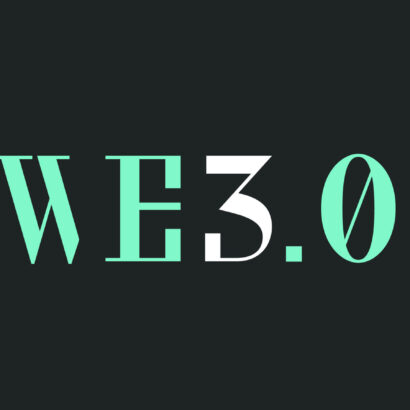Imagine you and your friends start a club and vote to make decisions using a computer program. This idea is appealing because it means that nobody is really in charge. The program would prevent any cheating.
Rather than operating as a Limited Liability Corporation (LLC) or just an informal club, this model is the basis for a Decentralized Autonomous Organization.
The backbone of DAOs is a Smart Contract written to the blockchain. It’s often used to drive the development of different blockchain or DeFi projects and even crowdfunding exuberant purchases.
However, it’s insufficient and incorrect to claim that a DAO is either completely decentralized or autonomous.
ConstitutionDAO anyone?
“ConstitutionDAO (2021-2021) was a beautiful experiment in a single-purpose DAO. We now believe this project has run its course.”
Key Takeaways
This article will be your starting point to understanding DAOs and importantly, their risks and limitations.
- DAOs are defined as Decentralized Autonomous Organizations
- They exist as an alternative to a corporate structure which allows for a community to vote on actions using smart contract technology
- Votes can be concentrated to a small amount of individuals
- Decisions may not go your way
- DAOs aren’t really decentralized or autonomous
- DAOs may expose participants to some legal liability
Bow Chicka DAO DAO
Defining a DAO
DAOs are organizations distributed across a community.
Community members can use their governance tokens to vote on decisions. These votes are recorded on a “smart contract”, code that exists on the blockchain ledger.
These two propositions lead to the idea that DAOs are decentralized and autonomous.
This allows a community or organization to grow, change or adjust their goals, and introduce “code” amendments that may change the way a cryptocurrency operates. The amount of a governance token owned by an individual impacts how much their vote will count.
Other common uses for DAOs include:
- Issuing grants
- Crowdfunding to buy an asset
- Investing in other ventures
- Purchasing or collecting NFTs
- Lending out NFTs specifically for Play-to-Earn gaming
Why DAOs?
Governance on the Blockchain
If you ask many in the crypto ecosystem, DAOs are fantastic because they allow for fair decision making and convenient voting on these decisions.
It can also allow many people to collaborate or fundraise for a goal that they’d be unlikely to reach on their own. It means that voting will be transparent and all the decisions taken within the organization are open for anyone to see.
What in the metaverse does governance on the blockchain really mean though?
- Token-based membership: The more of a governance token you own, the more votes you receive.
- Share-based membership: This requires you to apply and add something to the treasury — funds or NFTs — in exchange for a vote.
- Share-based membership: Other DAOs distribute voting rates based on community participation.
The smart contract defines what the organization can and cannot do. After it is written to the blockchain, it can only be amended through a vote. This smart contract will not allow any action that isn’t covered within the code to go through. This is of course, assuming there are no bugs or errors in the code.
DAOs and Legal Liability
Most DAOs lack any legal recognition — with the exception of those that register in Wyoming as a type of limited liability company. However in November 2021, the Securities and Exchanges Commission blocked the registration of a token offering from the first officially registered DAO.
While some crypto enthusiasts are optimistic about the legal nature of DAOs, they remain legally dubious. The limited liability corporation structure protects business owners from personal liability from a lawsuit.
“The DAO’s native token may be deemed “securities” and therefore any liability exposes the members to potentially unlimited liability,” Dr. Nick Oberheiden, founding attorney of Oberheiden P.C. said.
Since there is a flat hierarchy, everyone within the organization may be liable to a lawsuit.
As much as we hate to admit it, there’s often a rhyme and reason for bureaucracy. Since the nature of cryptocurrency is pseudonymous, it puts some risk on people participating in DAOs.
Limitations:
When DAOs Screw Up
Looking through different DAOs developed and deployed in the past provides a window into this strange world. It also makes clear some of the blaring limitations of this organizational structure.
A few examples of noteworthy DAOs:
The DAO
The earliest example of this form of governance is simply called “The DAO”.
It was developed to work on Ethereum as one of the earliest DAOs in 2016. It would allow people to allocate treasury funds to different projects by a community vote.
The DAO crowdfunded $150 million for its treasury but $60 million were stolen within months of the launch. Since the code underlying any program on the blockchain is open, transparent and immutable, it leaves itself vulnerable to hackers. These vulnerabilities were even pointed out by the community, however these funds were stolen before the bugs could be fixed.
Eventually the community voted on a hard-fork, a rewind of the network to a previous block — essentially erasing any of the actions undertaken by the hacker. The idea for this fork was not unanimous, leading to Ethereum Classic, a fork of the blockchain that was not rewound. However, without the backing of Ethereum’s co-founders and other large investors, Ethereum Classic has faltered into relative obscurity.
Key points:
- The code underlying the DAO can be exploited
- The decisions are not immutable, as a community can choose to rewind
- Even if you don’t like the outcome of the vote, you need to accept it
ConstitutionDAO
Just because a DAO exists and has important goals, it doesn’t mean they are always viable. What happens when these goals or aims fail? ConstitutionDAO was developed to crowdfund the purchase of a copy of the constitution.
Jonah Ehrlich and some 30 other people formed this DAO, providing votes in exchange for donations on the Ethereum blockchain. Once they buy the copy of the constitution at the Sotheby’s auction, the community could decide what to do with it. Everything was going swimmingly, the $47 million in crypto funds was verified and set to go for the auction.
They bid $43 million for the constitution at auction, with the remaining funds required for paying gas fees. However, Ken Griffin, a billionaire investor at Citadel caught wind of this and won the auction by betting $43.2 million.
This caused quite a mess because Ethereum gas fees also prevented efficient refunds – some would need to pay gas fees almost as large as their donation to get refunded.
Key points:
- Refunds in the DAO will be difficult
- Without a good framework or plan, the DAO could fail and investors or participants could essentially lose everything they put into it
- Crypto has its downsides when it comes to issuing refunds
More Limitations:
When is a DAO really a DAO?
Despite their moniker, DAOs are neither Decentralized or Autonomous.
In token-based governance, the majority of the DAO will often be controlled by a few individuals with the most investment within the protocol. In fact, most organizations cannot prevent the accumulation of voting power by a few members.
There isn’t really anything autonomous about a DAO.
Code itself is written by humans who are not unbiased or imperfect. Humans provide the input and the votes to modify the code and set the community values. While many in the crypto community will claim that “code is law”, it can always be reversed through a fork.
The phrase “code is law” is problematic because it may leave people with the expectation that the code is infallible, when in reality it is not. Since code and data added to the blockchain is immutable and cannot be edited, it is likely that many snippets of code with errors are uploaded.
In the case of DAOs, “decentralized” and “autonomous” are just buzzwords that accelerate their adoption.
Questions to Ask About a DAO
If you’re looking to join one of these organizations, there will be plenty of important information you should consider beforehand. Many DAOs will fail spectacularly, so be warned.
This sets the internet ablaze with memes and some animosity making fun of people financing the failed DAO.
[insert meme]
However, usually people who invest in them haven’t seriously weighed the pros and cons or reviewed information that does not confirm their biases.
Here are a few things to think and ask about:
- Is the goal of the DAO something that is legally or financially feasible?
- What happens after the DAO meets or fails this goal?
- How does the voting structure work?
- What proportion of votes belong to whales and early investors?
- If you decide to leave the DAO, will it be easy to receive a refund?
- Are you in a jurisdiction where you might be legally liable for the activities of the DAO?
- Does the DAO use misleading language in its advertising materials?
- Is there a clear, detailed whitepaper as well as a unique value proposition for the DAO?
Conclusion
DAOs are organizational structures that function within the cryptocurrency and blockchain space.
Rather than a standard limited liability corporation, DAOs allow shareholders to vote on the decisions being made by the whole community. While this makes it easier for an average person to participate in governance, voting structures will often favor whales or early investors.
Both The DAO and the Constitution DAO showcase some limitations of this structure. A smart contract that is open and transparent is also fallible and vulnerable to hacks.
Not every decision voted on by the community will garner everyone’s support.
Finally, sometimes DAOs will fail without any good plans in place for what to do afterward.



